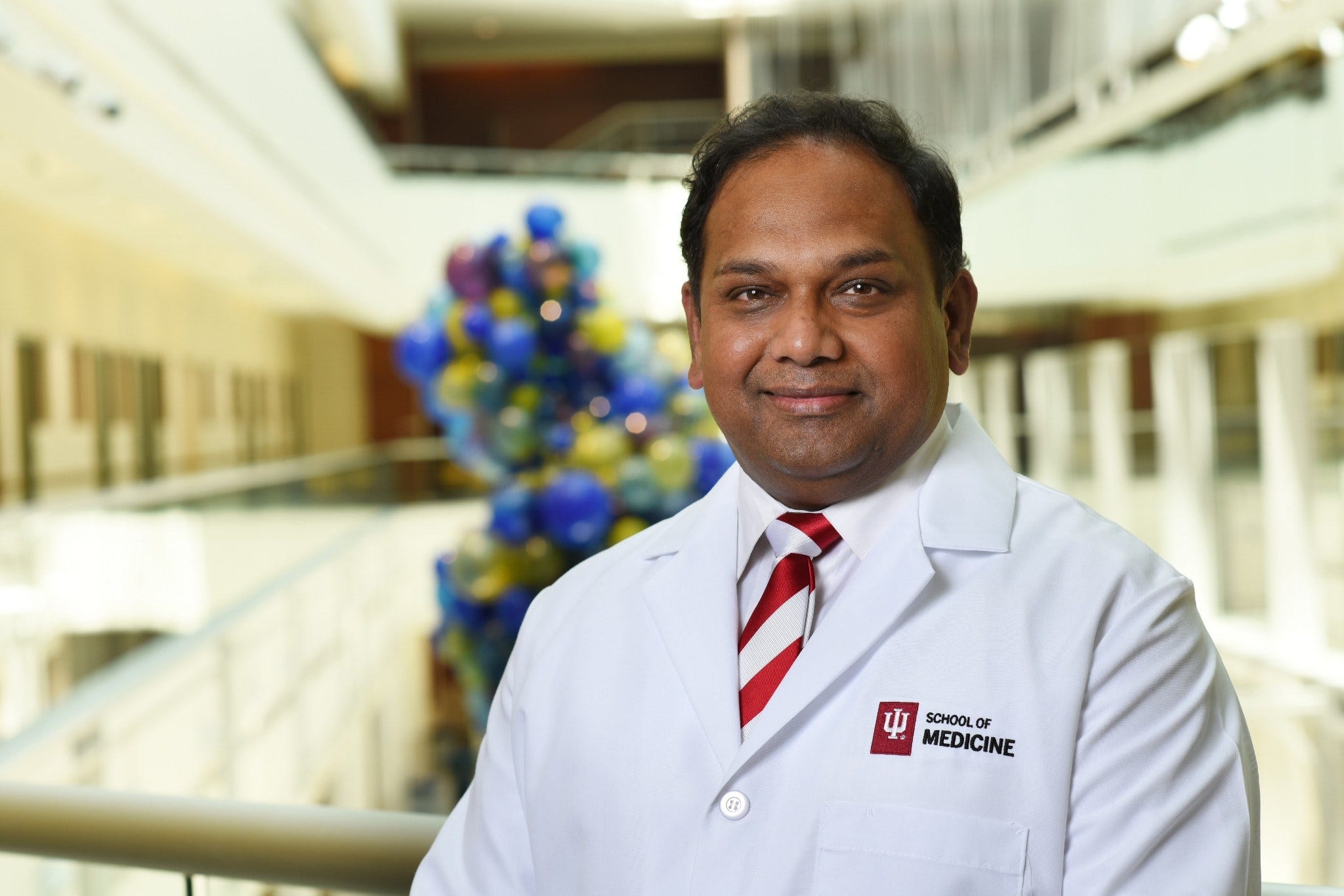INCITE Attracts Another ‘Superstar,’ Adds Might to Precision Health
 Dr. Chandan Sen is the latest scientist recruited by the INCITE program.
Dr. Chandan Sen is the latest scientist recruited by the INCITE program.
Subscriber Benefit
As a subscriber you can listen to articles at work, in the car, or while you work out. Subscribe NowThe Indiana University Precision Health Initiative (PHI), now at the two-year mark, recently announced progress toward its goal to unleash the power of personalized medicine to cure one cancer and one childhood disease over the next decade. One engine driving that machine is the human talent that has been recruited to the state, supported by a $25 million INCITE grant. The Lilly Endowment Inc. funds aim to link the scientists to the business sector and spur translational research. The number of these “superstar” scientists is growing, and leaders say the business benefits are certain to follow.
“INCITE allows the IU School of Medicine (IUSM) to bring talent to Indy that are desired also by the public sector—that’s the real purpose of INCITE,” says PHI Principal Investigator and IU Associate Vice President for Clinical Affairs Dr. Anantha Shekhar. “We’ve leveraged the PHI and INCITE programs—combined the two opportunities, so we can really go after superstars, as opposed to one source helping us recruit good talent, but not superstar talent.”
The INCITE program, announced one year ago, aims to hire 10 prominent scientists who are renowned in their field. Three have already joined the forces at IU. The latest was announced just this month: Dr. Chandan Sen will oversee IUSM’s Indiana Center for Regenerative Medicine and Engineering.
He joins INCITE scientists Dr. Michael Weiss, who is creating better insulins for patients with diabetes, and Dr. Roland Herzog, an immunologist developing a variety of innovative programs for children’s diseases. Shekhar says IUSM will announce a fourth scientist soon, who is a prominent expert in asthma and childhood diseases.
“That will transform our ability to do pediatric research at Riley [Hospital for Children at IU Health] and will be a close collaboration with Lilly,” says Shekhar. “He will be very much responsible for the [PHI] childhood disease pillar and hopefully will bring some new areas as well, in terms of closer partnership with Lilly and Riley.”
INCITE’s industry partners, including Indianapolis-based Cook Regentec and West Lafayette-based Cook Biotech, plus the Lilly backing, boost Indy’s recruitment package. Shekhar says the companies are “also co-recruiting [the researchers], in a sense, as their partner; I think that adds twice the value for our scientists who come here.”
“This is an autocatalytic process, where each recruitment facilitates the next, and we’re building a great set of teams here in Indy and throughout the state,” says Weiss, who also sees the value of working closely with industry. “The commercialization process is the only way to get from an academic lab or hospital to patients. And the resources required to go through Phase 1, 2, 3, clinical trials and, ultimately, FDA approval of a new drug, are not the forte of the academic world, but requires a commercialization partner.”
Shekhar says those academic and industry relationships will create economic and commercial ripple effects.
“Every one of these recruits is going to create one or two companies with multiple commercializable ideas. It’s going to, essentially, make us a powerhouse in innovation and commercialization,” says Shekhar. “That dimension will probably take about a decade to fully mature, but it’s going to be a long-lasting legacy beyond the medical research.”
Both Shekhar and Weiss point to 16 Tech as fertile soil for startups; the 60-acre innovation community in Indianapolis is in close proximity to IUSM and Riley. Weiss co-founded Thermalin Diabetes, Inc. in a Cleveland Clinic incubator and is “excited to explore if we can move part of the company to 16 Tech and have a branch and labs in Indy.”
“The prospect of having incubators located near IUSM in Indy is exciting. 16 Tech can do for Indy and its economic vitalization what the biotech spinoffs have done around Purdue—the whole cluster in the electronics/engineering space. Here in Indianapolis, we have the potential for exciting growth and job creation in biotech,” says Weiss. “It’s two birds with one stone; we enhance the academic strength of IU, and we also contribute to job creation in Indy. That’s a great vision that combines our academic leadership with our civic leadership.”
Weiss says Indiana is working to strengthen its ability to attract early-stage funding.
Weiss believes the PHI will add momentum to the discovery process, which will lead to the creation of startups and partnerships with major companies.
Shekhar says the heavy involvement of industry partners is creating value for Indianapolis.
